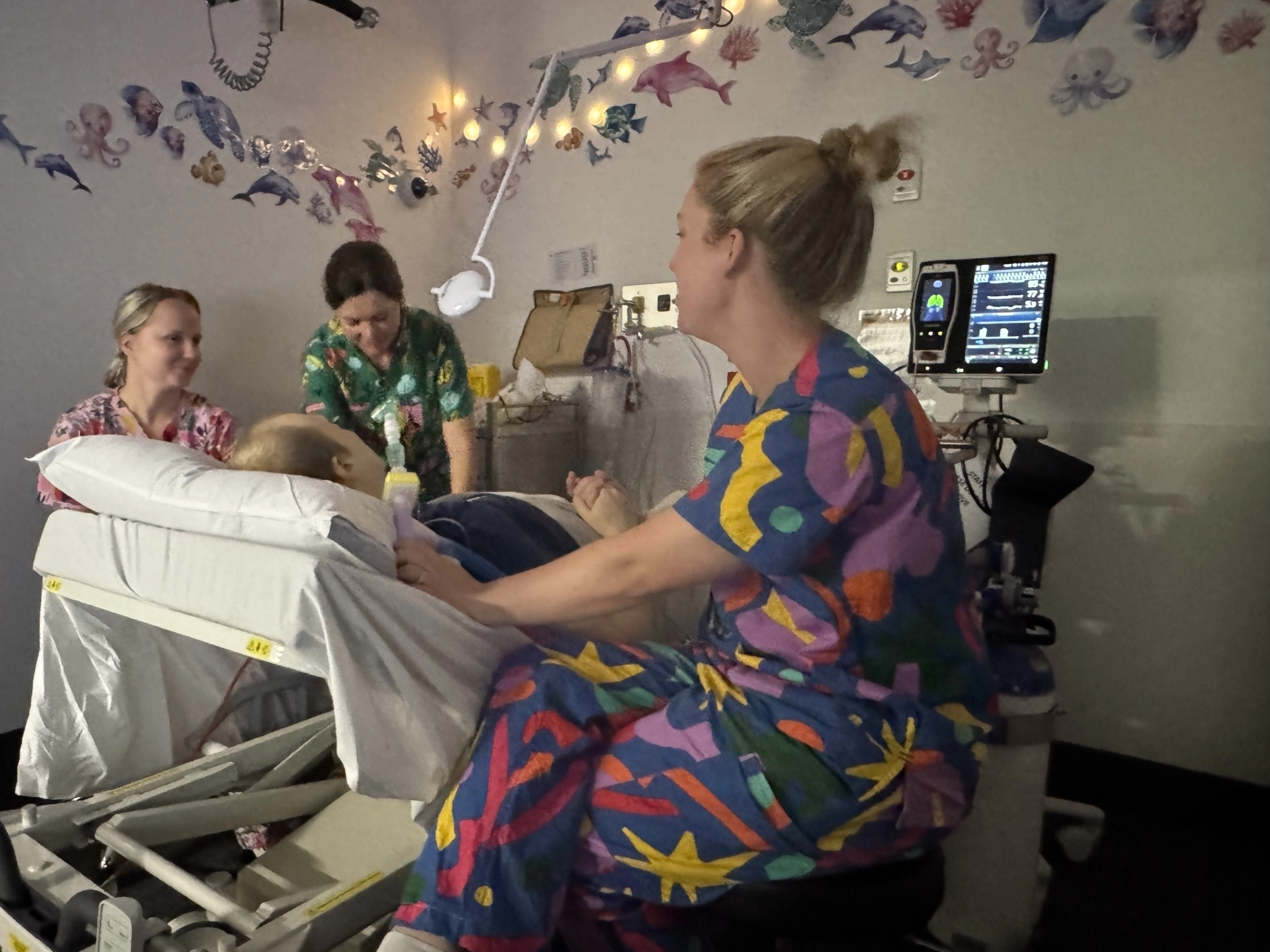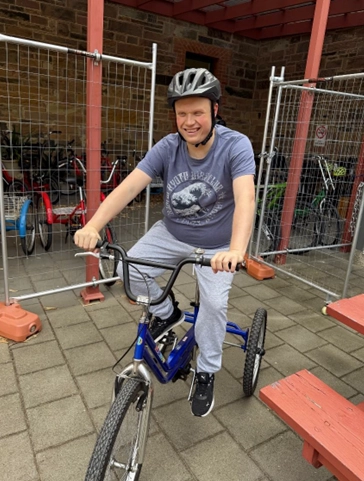




A kinder way to care for patients with intellectual disabilities

A new, innovative model of care is helping patients with intellectual disabilities, like Tim, to receive minor but potentially life-saving procedures.
Around 30% of people with intellectual or developmental disability are unable to complete minor needle-based procedures, such as a blood test or immunisation. This can be due to distress, previous trauma or sensory needs that aren’t accommodated in standard medical settings.
This creates significant barriers to preventive healthcare and contributes to a staggering 27-year gap in life expectancy.
A pilot program, led by Dr Jessica Smith and partially supported by Flinders Foundation, is changing the way care is delivered. The program assesses each patient’s individual needs and makes personalised adjustments to ensure procedures can be completed safely. These adjustments can range from simple environmental and sensory changes, through to light or even deep sedation with support from an anaesthetist.

For Tim, not being able to get a simple blood test could have cost him his life.
Tim, 32, has profound autism, is non-verbal, and has struggled accessing healthcare since he was a child.
“Since about age five, we weren’t able to get any bloods taken from him and we couldn’t find anybody that would do it,” said Denise, Tim’s mother.
“No Doctor would do it because Tim was really scared and he’s actually quite a big boy.
I can’t control him, I can’t hold him down. There’s no way we could hold him down to get any blood tests done.”
When his family noticed that he was becoming pale and wasn’t himself, they knew something was wrong. A blood test was needed.
Tim’s haemoglobin levels were dangerously low. Any further delay could have been life-threatening.
“It was a godsend. I don’t know that Timothy would’ve still been with us.
The care given by those girls was just incredible. They talked to him, they played music for him. Before they even touched him they would sit with him and get to know him. They were looking at every way how they could get some bloods out of him.”

Stories like Tim’s inspired Dr Smith to launch the program.
“This pilot has evolved from the many patients I have been involved in caring for who have died because of their inability to access basic healthcare. A simple blood test or immunisation can be life-saving,” said Dr Smith.
“There are limited options available to people with disability.”
“Our adult patients often feel a great sense of achievement in the certificates they obtain from completing different levels of a procedure.”
Thanks to your generous support, Dr Smith and her team are revolutionising healthcare for people with intellectual and developmental disabilities, ensuring that intellectual disability is not an exception to exceptional care.
Funding from Flinders Foundation and The Hospital Research Foundation Group was essential to piloting this new and innovative model of care.
More stories about
Keep up to date
Subscribe to our newsletter to receive information on our latest news and events
Flinders Foundation acknowledges the Kaurna people as the traditional custodians of the land on which the Flinders precinct was established. We acknowledge the Kaurna people’s deep and ongoing connection to land, waters and community, and pay our respect to their Elders, past and present.


















